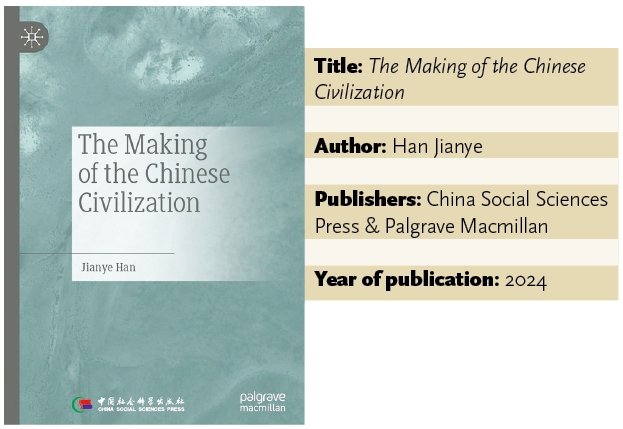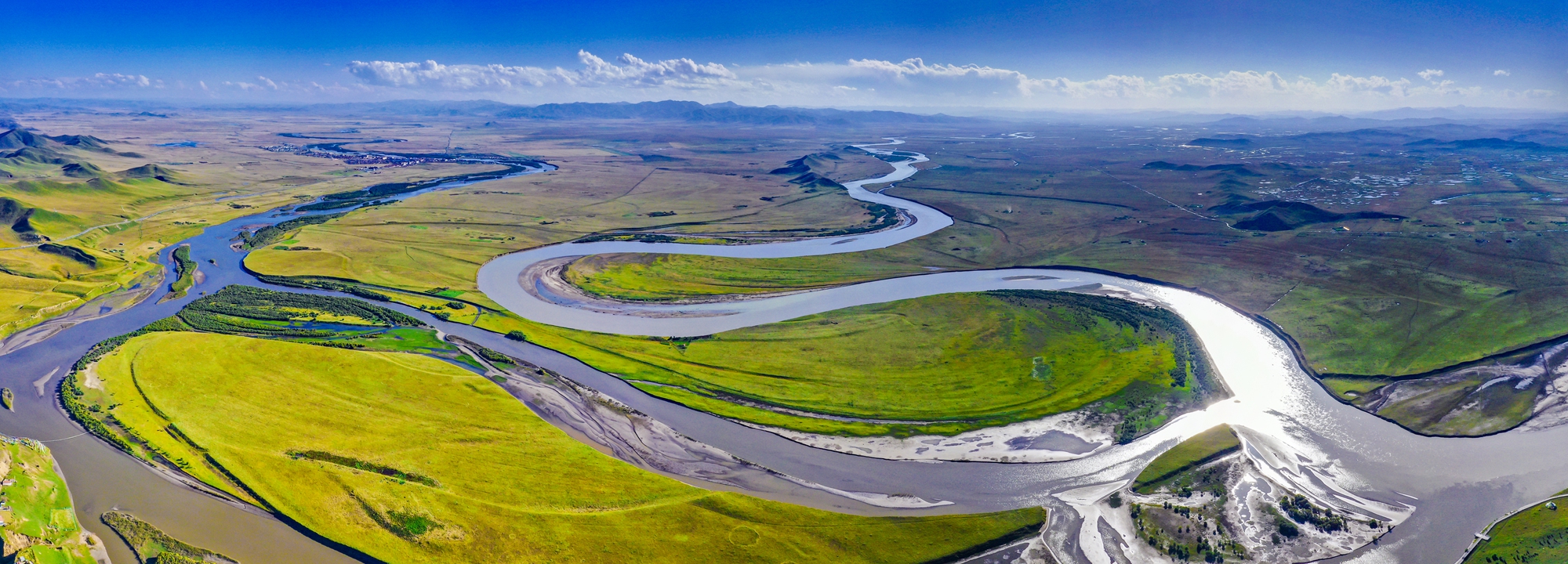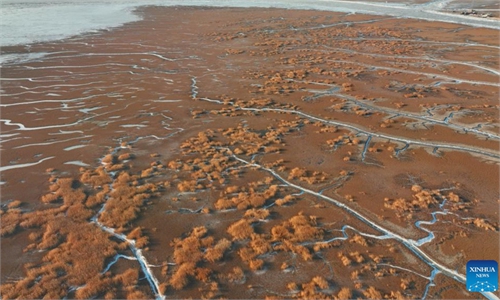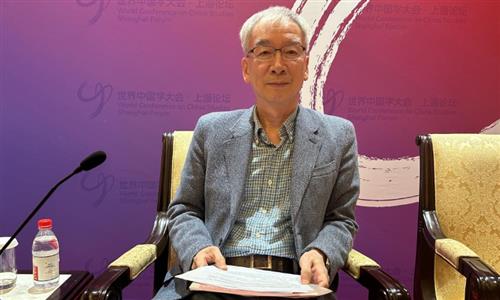ARTS / CULTURE & LEISURE
New book unravels the mystery of Chinese civilization
New book unravels the mystery

The Making of the Chinese Civilization was published in early February with the aim of informing readers overseas how Chinese history and civilization have evolved over the past 8,000 years through archaeological studies.
The book, which was translated from a Chinese original with the same title, was co-published by the China Social Sciences Press and Palgrave Macmillan, a British academic and trade publishing company. It is now available on e-commerce platforms overseas, such as Amazon.
The author, Han Jianye, is a distinguished Chinese archaeologist and professor at the Renmin University of China, who has conducted extensive research on the origins, formation, and early development of Chinese civilization.
In his book, Han delves into the origins of Chinese civilization, tracing it back over 8,000 years and noting its consolidation around 5,000 years ago, with distinct origins in the north, central plains, and eastern regions. He underscores the pivotal roles of environmental changes and warfare in the evolution of Chinese civilization, while also highlighting the infusion of fresh vigor through cultural exchanges with the West.
"In a world often fraught with conflicts and turmoil, understanding the essence of peace and harmony embedded within Chinese civilization becomes imperative," Han told the Global Times.
Han emphasizes the peaceful nature of the Chinese civilization, juxtaposing it against the backdrop of global conflicts. Contrary to misconceptions, he asserts that throughout history, China has never been an aggressor, a principle that underpins the China-proposed Global Civilization Initiative.
According to Han, since its inception in 1921, Chinese archaeology has been steadfast in unraveling the origins of Chinese civilization. Through the toil of successive generations, insights into China's cultural genesis, dating back over 8,000 years, have crystallized. In 2002, Chinese cultural authority launched a national-level project to trace the origins of Chinese civilization, with about 400 scholars across the country in 20 disciplines of natural and social sciences participating in the project.
As a key advisor to the origin-tracing project, Han dispels the notion that civilization equates solely to nation-states, asserting that nations merely manifest facets of civilization.

The Yellow River, the "mother river" of the Chinese nation Photo: VCG
Challenging misconceptionsProposing a revision of Chinese history to extend back 8,000 years, Han draws attention to archaeological findings at the Liangzhu site, which offers tangible evidence of the first central dynasty recorded in Chinese history - Xia Dynasty (c.2070-c.1600BC). However, he posits that preceding the Liangzhu culture, there existed proto-civilizational activities laying the groundwork for subsequent developments.
Despite prevailing Western paradigms that prioritize written language as a hallmark of civilization, Han highlights that not every civilization has a "written language," citing the example of the Inca Empire, which communicated through a special system of different knots tied in ropes attached to a longer cord, known as quipu or khipu.
Moreover, ongoing efforts to decipher ancient Chinese characters discovered from the Chinese archaeological site dating back 8,000 years ago hint at deeper layers of complexity awaiting exploration.
The publication of an English edition of his book serves a dual purpose for Han. It seeks to dispel the misconception that only Egypt boasts the world's oldest civilization, spotlighting China's distinctiveness and continuity spanning millennia. Unlike Western archaeological sites yielding gold and diamonds, Chinese excavations predominantly unveil jade-ware, emblematic of its unique cultural heritage.
As Han affirms, with irrefutable archaeological evidence, the Chinese civilization is the only uninterrupted civilization in the world, perpetuating its legacy to the present day.
Translation bridges cultures
Chief translator of the book, Liu Zequan, a professor at the School of Language at Henan University, told the Global Times that as a language translator, this was the first time that he engaged in the translation of a topic in Chinese archaeology, and he thought telling the readers overseas that how China has evolved over the past 8,000 years is a good example of "telling China's stories well."
Undertaking the translation project for the first time in the realm of Chinese archaeology, Liu and five other dedicated educators, including Wolfgang Teubert, a retired linguist who previously taught at the University of Birmingham, spent nearly a year meticulously translating the complexities of China's historical odyssey into English.
The endeavor was not without its challenges, particularly in navigating the nuanced terrain of archaeological terminology. Liu emphasized the difficulty of reconciling terms such as "grave" and "cemetery" and determining whether to adhere to academic jargon or opt for plain language, a testament to the intricacies of cross-cultural communication.
By consulting with archaeological experts and foreign scholars, the team carefully crafted translations that not only respected the integrity of the source material but also effectively conveyed its essence with fluency and authenticity.
In an era where artificial intelligence increasingly aids academic endeavors, Liu made a conscious decision to eschew AI assistance. Despite the allure of AI tools like ChatGPT, Liu asserted the irreplaceable value of human expertise in producing nuanced and effective translations. He emphasized that reliance on AI would only compound the workload, necessitating extensive proofreading efforts. Instead, Liu and his team adopted a principled approach, prioritizing fidelity to the original text while ensuring the translated narrative resonated authentically in English. For Liu, the translation endeavor served as a profound source of national pride, illuminating the vast expanse of China's cultural heritage spanning over 8,000 years.
"It is amazing my home country boasts a history going back even 8,000 years ago," he said, adding that the current national project of tracing the origin of the Chinese civilization is of great significance and the timeless saga of China's past deserves to be known by more people in the world.




